Why Choose Connecticut Children’s Neonatology
The Division of Neonatology is dedicated to providing comprehensive, family-centered care to premature and sick newborns throughout Connecticut and eastern New York. With 214 licensed beds across 15 neonatal intensive care units, Connecticut Children’s cares for more than half of all NICU babies in the region. We're also teaching the next generation of neonatologists in our Neonatal-Perinatal Fellowship. Through our Care Alliances and partnerships with community health systems, we bring expert neonatal care closer to home.
Our highly skilled neonatologists work closely with your obstetric and maternal-fetal medicine teams as well as other pediatric specialists to ensure your baby receives the best care.
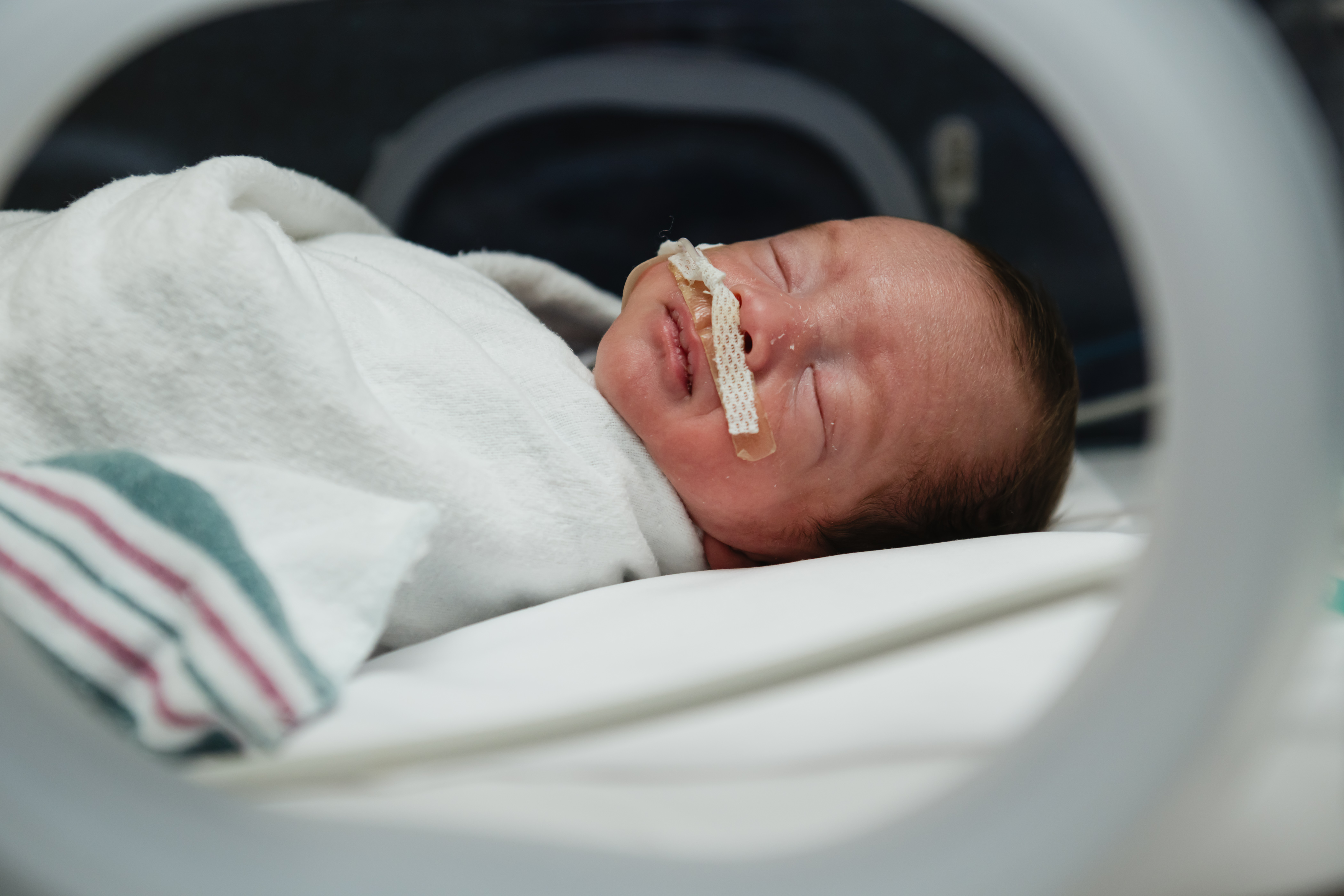
Inside the NICU
A new baby always needs special care, and babies who begin life in the NICU may have some extra needs. Learn about our family-centered approach to care and the role each member plays on our experienced team.
Learn MoreOur Neonatology Expertise
Your Neonatology Specialists
Connecticut Children’s board-certified neonatologists, neonatal advanced practitioners and NICU nurses have advanced training to care for babies born prematurely or with health challenges.
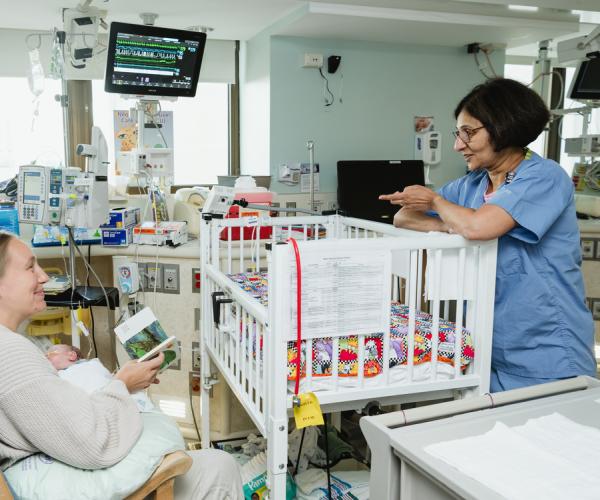
Improving Outcomes and Guiding Best Practices
Our team engages in basic, clinical and translational areas of investigation that include breastfeeding and necrotizing enterocolitis (NEC).
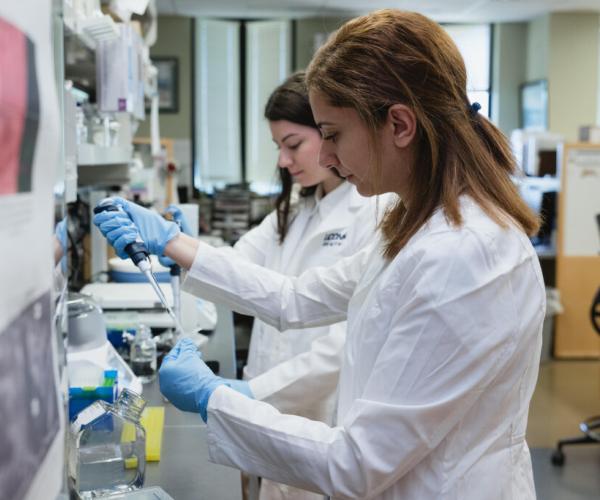
Continuing Care for NICU Grads
When you’re ready to bring your baby home, your care team is with you every step of the way. That includes communicating with your baby’s primary care pediatrician, and, if needed, identifying options for ongoing clinical care, including our NICU Transition Medical Care Program and Neonatal Neurodevelopmental Follow-Up Program.
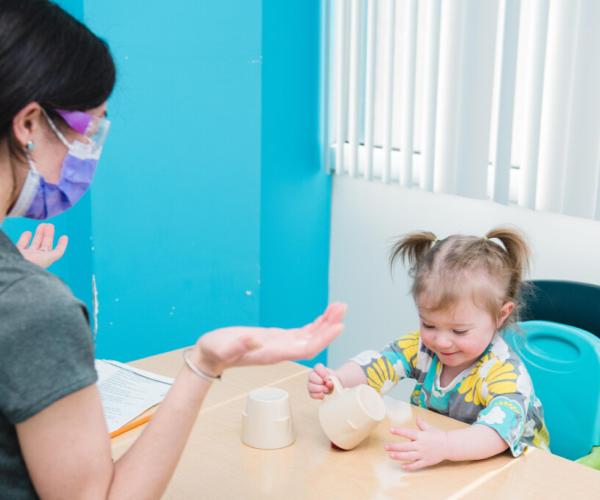
Advancing Care & Research
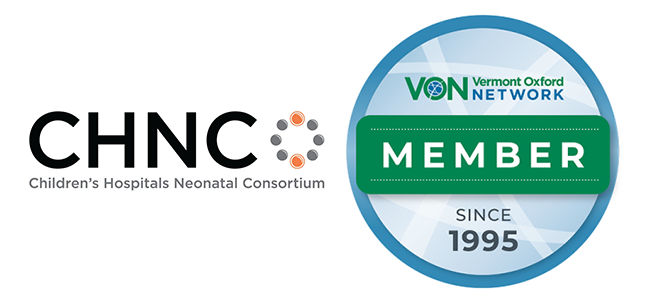
We’re proud to be a member of the Children's Hospital Neonatal Consortium (CHNC) and the Vermont Oxford Network (VON). CHNC members share data, information and ideas for benchmarking, research and development, and safety and quality improvement initiatives. Similarly, VON facilitates the world’s largest databases of practices and outcomes for neonatal care and supports data-driven quality improvement, education, and research. These collaborations enable Connecticut Children's to provide cutting edge care and improve outcomes in our NICUs.
Frequently Asked Questions
Babies are most often admitted to the NICU for prematurity, however babies may be admitted for many other reasons such as breathing or feeding difficulties. Babies born with congenital defects or requiring surgery may be also admitted to the NICU. The baby’s diagnosis will guide how long the infant will typically need to remain in the NICU. Premature babies often stay in the NICU until close to, or even after, their due date.
Prematurity and breathing difficulties are two of the most common medical conditions treated in the NICU. Other reasons for admission include feeding difficulties, infections, and congenital defects including heart disease.
- Prepare a travel bag for back and forth with snacks and water for the time you are at the hospital
- Make arrangements for the care of other children or home responsibilities while you are at the hospital with your baby.
- Familiarize yourself with the NICU policies and procedures, including visiting hours and guidelines for interacting with your baby during treatment.
- Be open to asking questions or expressing concerns to your baby's medical team; it is particularly helpful if you can be present during team rounds.
- If you plan to pump milk or breastfeed, begin gathering the supplies needed and discuss with the hospital team the arrangements for transporting milk
The NICU will also provide resources for mental health support and other services to help you cope with this challenging time.
Common complications of premature birth may include:
- Feeding difficulties
- Breathing challenges
- Slow growth
- Jaundice
- Developmental delay
- Visual problems
Prematurity may affect your baby's development in a number of ways, though typically the impact on development is related to how early the baby is born. Some common issues may include:
- Delays in physical development (such as sitting up or walking)
- Difficulty with speech development and learning
It is important for many premature babies to receive ongoing developmental evaluations over the first years of life to catch, and help treat, these problems early.
There are several ways to support your premature baby's growth and development while they are in the NICU and after they come home. Some recommendations include:
- Holding your baby against your bare chest skin-to-skin, which can help promote bonding, improve their stability and increase milk production.
- Talking, reading, and/or singing to your baby during feeding or other times when they are awake.
- Engaging with them through touch and sound as much as possible to stimulate their senses and promote development.
- Following any instructions from the medical team for developmental activities or therapies that may be recommended for your baby.
Continuing coordinated care after your baby comes home from the NICU can also help support their ongoing development and well-being.
Our NICUs

Connecticut Children’s NICU at Hartford Hospital
80 Seymour Street
Hartford, CT06102
United States

Connecticut Children’s NICU at UConn Health Center
263 Farmington Avenue
Farmington, CT06032
United States
Connecticut Children's Medical Center
282 Washington Street
Hartford, CT06106
United States
Our Affiliate Locations
Connecticut Children’s Medical Center – Hartford
282 Washington Street
Hartford, CT06106
United States

Connecticut Children’s Specialists at Backus Hospital
326 Washington Street
Norwich, CT06360
United States

Connecticut Children’s Specialists at Day Kimball Healthcare
320 Pomfret Street
Putnam, CT06260
United States
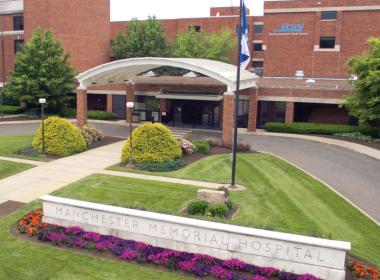
Connecticut Children’s Specialists at Eastern Connecticut Health Network
71 Haynes Street
Manchester, CT06040
United States
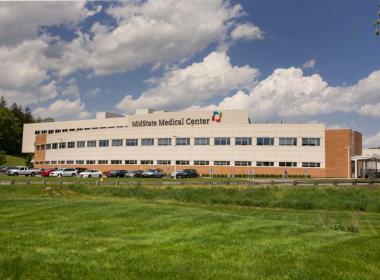
Connecticut Children’s Specialists at Midstate Medical Center
435 Lewis Avenue
Meriden, CT06451
United States

Connecticut Children’s Specialists at St. Vincent’s Medical Center
2800 Main Street
Bridgeport, CT06606
United States

Connecticut Children’s Specialists at The Hospital of Central Connecticut
100 Grand Street
New Britain, CT06050
United States

Connecticut Children’s Specialists Pediatric Care at Danbury Hospital
24 Hospital Avenue
Danbury, CT06810
United States
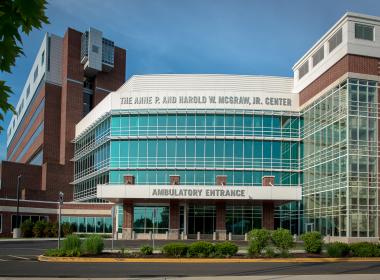
Connecticut Children’s Specialists Pediatric Care at Norwalk Hospital
34 Maple Street
Norwalk, CT06850
United States
The Latest Neonatology Stories
Neonatology Resources
Birth to Three
Connecticut’s Birth to Three System strengthens the capacity of families to meet the developmental and health-related needs of their infants and toddlers who have delays or disabilities.
Care 4 Kids
Sponsored by Connecticut’s Department of Social Services (DSS), Care 4 Kids helps low to moderate income families in Connecticut pay for childcare costs. For more information, call 888.214.KIDS (5437).
Connecticut Department of Public Health (DPH)
Connecticut offers several programs and services to enhance the well-being of parents and children across the state. The Women, Infants and Children (WIC) program provides nutrition and breastfeeding support to eligible pregnant, postpartum and breastfeeding women, infants and children up to age five.
Connecticut Family Support Network
The Connecticut Family Support Network is a statewide network of families who have children with disabilities and special healthcare needs. For more information, call 860.430.5679.
Deaf and Hard of Hearing Services
The Connecticut Department of Rehabilitation Services provides deaf and hard of hearing services to those in need. For more information, call 860.231.1690 (TTY/voice).
Hispanic Health Council
The Hispanic Health Council aims to improve the health and social well-being of Latinos and other diverse communities. It provides bilingual support on topics including breastfeeding and parenting along with many other services.
Parents Available to Help (PATH)
PATH is a network of families providing informational and emotional support to others who have a child with developmental or health related needs. For more information, call 203.234.9554.
Safe Kids Connecticut
Safe Kids Connecticut is a statewide network of people and organizations who work together to prevent childhood injury, and offers car seat checks and fitting stations throughout the year. For more information, call 860.545.9988.
La Leche League
La Leche League helps mothers worldwide to breastfeed through mother-to-mother support, encouragement, information, and education. Breastfeeding is personal experience, and a connection with local breastfeeding mothers provides personalized support and encouragement.
Little Hearts
Little Hearts is a national organization providing support, education, resources, networking, and hope to families affected by congenital heart defects.
March of Dimes
The March of Dimes helps moms have full-term pregnancies and researches the problems that threaten the health of babies.
Multiples of America
Multiples of America is dedicated to supporting families of multiple birth children through education, research, and networking.
National Down Syndrome Society
The National Down Syndrome Society is a national advocate for the value, acceptance and inclusion of people with Down syndrome.
Spina Bifida Association
The Spina Bifida Association promotes the prevention of Spina Bifida and aims to enhance the lives of all affected.
United Cerebral Palsy
United Cerebral Palsy educates, advocates and provides support services to ensure a life without limits for people with a spectrum of disabilities.
United Ostomy Associations of America
The United Ostomy Associations of America is a national organization to provide support, information and advocacy to ostomates and their caregivers.
U.S. Centers for Disease Control and Prevention (CDC)
The CDC provides information, education and recommendations about childhood vaccines and immunizations. The National Center on Birth Defects and Developmental Disabilities focuses on protecting people who are especially vulnerable to health risks – babies, children, people with blood disorders, and people with disabilities.
Vaccinate Your Family
In conjunction with the CDC, Vaccinate Your Family aims to protect all children from vaccine-preventable diseases by raising prenatal awareness for timely infant immunizations.




